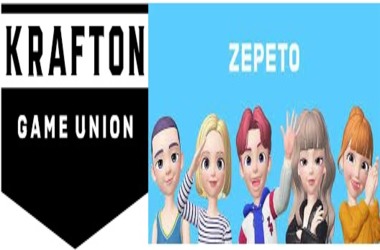
Web 3.0 has been presented by technologists as a potential answer to worries regarding the web’s high degree of centralization in a few large technology businesses. Web3 might significantly increase data protection, scalability, and secrecy over and above what is now feasible with Web 2.0 technologies that are based on user-generated material posted to social media media networks, blog sites, and wikis, among many other offerings.
Krafton and Naver Z have entered into a memorandum of understanding (MoU) to jointly market, produce, and run innovative Web 3.0 companies including metaverse, blockchain-powered games, and even non-fungible tokens (NFTs). Blockchain technology is a decentralized facility that allows for the sharing of duplicated and synced information between numerous servers owned by nations or entities.
NFT may be used to define a specific digital file, including artwork, music, video, or a gaming object. It is verified via the use of a blockchain network and serves as evidence of possession. The initial collaborative endeavor will be to create a strategic alliance to manage a user-created NFT metaverse service. Krafton leverages its knowledge and experience in developing online games to build a top-quality virtual environment centered on its game engine and to give a platform for client-generated content production.
Naver Z is in charge of developing and operating novel and distinct metaverse facilities, as well as community and social offerings. “By bringing together a gaming business and a platform firm with strong global competency to create a similar future as NFT and metaverse, we intend to achieve rapid synergy,” an anonymous Krafton executive stated in a media release on February 9.
Via NFT, Krafton intends to build a state-of-the-art user-generated freely accessible metaverse platform and to invoke a scalable Web 3.0 creative economy. Krafton’s announcement comes a day after Kakao’s games development arm revealed a new approach for metaverse and NFT firms encompassing decentralized exchanges and decentralized finance (DeFi), which utilizes smart contracts on blockchains without the use of centralized third parties for financial dealings.
DeFi systems enable individuals to lend and borrow cash, gamble on the price fluctuations of a variety of assets utilizing derivatives, exchange cryptocurrencies, protect against uncertainties, and collect interest on savings mimicing accounts. Trades can place directly between members and are handled by smart contract algorithms written on open-source platforms that can be readily replicated to create rival platforms.
“Via metaverse, we will launch numerous facilities including blockchain-powered gaming and entertainment,” Kakao Games CEO Cho Kye-hyun said of BORA 2.0. Friends Games, an associate firm of Kakao Games and a producer of the cryptocurrency BORA, has rebranded as Meta Bora in order to foster other blockchain-related enterprises. BORA 2.0 will strive to develop a governing council, a vibrant token market, and a massively scalable environment. With around 20 collaborators, notably game firms, Kakao’s gaming and entertainment divisions will become a member of the council.
“We will do everything possible to assist Kakao Games in integrating their expertise and networks in the gaming business into the BORA environment,” Cho stated.
Kakao Games will produce play-to-earn (P2E) titles. P2E titles are early-stage metaverse applications that include novel economic models enabling users to earn a consistent income just by playing. P2E games are often enabled by blockchain technology and provide players prizes and incentives depending on their network activity or in-game accomplishments. Users may trade their crypto for items on marketplaces as they acquire it via gaming pursuits.
Over ten on-boarding game genres will be offered using the token economy, beginning with a simple golf game in 2Q22 and social networking casino games the following quarter.